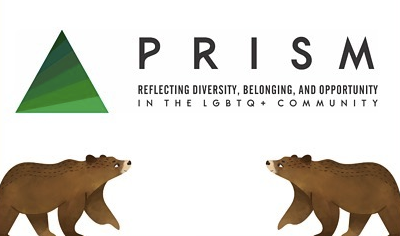The Baylor University Board of Regents approved a “Resolution on a Caring Community, with “the possibility of establishing a new, chartered student group” for “Baylor’s LGBTQ students” in May 2021.
One year later, the university has announced the official formation of a new group named “Prism: Reflecting diversity, belonging, and opportunity in the LGBTQ+ community.”
The group states its intent to provide care, community and opportunity for LGBT-identified students in its charter:
The mission of Prism serves Baylor University and its students through creating a respectful space that embraces diverse sexual identities (community) focused on continuous learning for the Baylor community, giving voice for LGBTQ+ students to the administration (care), and creating opportunities for all students to access resources through connection, belonging, and education.
Students struggling with same-sex attractions and sexual identity do need care and support. But there’s no indication Prism (Get it? The rainbow?) will help students move toward healing, wholeness, a biblical identity in Christ, and living according to the biblical sexual ethic.
That’s not their mission.
Baylor, affiliated with the Baptist General Convention of Texas, which is itself affiliated with the Southern Baptist Convention, has an undergraduate enrollment of more than 15,000 and a postgraduate enrollment of more than 4,500.
The school began moving away from the two Baptist organizations in 1991, when it began appointing its own board members.
Over at First Things, Carl Trueman, a professor of biblical and religious studies at Grove City College, writes:
The charter itself is interesting. It contains no reference to Christ or Christianity, an odd lacuna for a group at a Christian university. Especially for a group whose stated mission is to “help students gain deeper understanding of their own and others [sic] complex and intersectional identities, including gender and sexuality and faith and spirituality” and to “provide resources to navigate essential services including physical, mental, or spiritual well-being at Baylor and beyond.”
We are all now familiar with spirituality Hollywood-style, which lacks objective content and represents little more than self-affirmation. It is unfortunate that a Christian school would endorse such language without requiring some explicit reference to the Christian faith.
He’s right. Nor does the charter say anything about the Bible.
Language like “intersectional identities” shows the students – and the Board that approved the charter – have left Christian thinking behind and are taking their cues from the culture.
For over 1950 years, the church took one view on homosexual and “transgender” lust and behaviors: They were sins.
Christianity, and Judaism before it, clearly taught a positive good: God created humans male and female in His image, and marriage is the life-long, exclusive union of a husband and wife and the only place for sexual activity.
The church also taught that our identity comes from who God made us to be, not from sexual attractions or gender ideology.
In 1955, Anglican priest Derrick Sherwin Bailey published the first real challenge to Christian teaching about homosexuality. He questioned whether Sodom and Gomorrah were destroyed because of sexual sin – or because of “inhospitality.”
Since Bailey’s questioning of God’s word, several U.S. denominations left biblical teaching on issues of identity, sexuality and marriage.
Now, evangelical churches, ministries and schools have seen confusion and disagreement around homosexuality and transgenderism, with many moving away from God’s clear design for sexuality and relationships.
Southern Baptist Theological Seminary President Al Mohler stated the importance of Baylor’s shift from Christian orthodoxy last year, when he commented on the opening of a door for a homosexual and transgender group on campus.
He wrote:
[T]he moment you allow an officially recognized chartered student group identified with LGBTQ identity, then you’re basically saying that that identity has a legitimate place within the university or the college. …
Once you accept that identity as an official student group, that means you are basically recruiting students who share that identity.
Mohler explained that the university was trying to have it both ways. While claiming that it was maintaining a policy of “purity in singleness and fidelity in marriage between a man and a woman is the biblical norm,” it was opening the door for an LGBT group on campus.
Mohler said the university was saying, “We’re going to maintain our convictions, but we’re going to invite people to argue against us in the classroom, on the campus and now in official university policy.”
With the launching of this new rainbow group, Baylor’s Board of Regents has continued its movement away from orthodoxy, inviting on their campus a group that opposes Christian teaching on identity and sexuality.
Related articles and resources:
Freedom from Homosexuality – What’s the Controversy?
Talking to Your Church about Homosexuality: A Guide for Pastors and Church Leaders
Three Reasons Why Pastors and Church Leaders Should Talk about Homosexuality in the Church
Students at Christian School Follow the Culture on Homosexuality – Rather Than Scripture
What Does the Bible Say About Homosexuality? Answering revisionist gay theology
Photo from Facebook.






